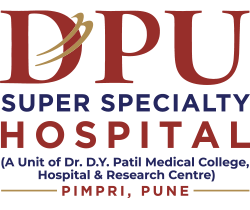Diabetes Management Tips & Techniques: Diet, Exercise, and Medication

What is Diabetes Management?
Diabetes management is a comprehensive approach individuals use to control and maintain their blood sugar levels within a target range. It involves a combination of lifestyle modifications, including dietary choices, regular physical activity, and, in some cases, medication. Effectively managing diabetes is crucial to prevent complications and ensure overall well-being.
How Can I Manage My Diabetes? Diabetes Management Tips & Techniques
Effectively managing diabetes requires a multifaceted approach that encompasses various lifestyle factors. Consulting with healthcare professionals for personalized guidance is essential for optimizing diabetes management strategies.
Here's a breakdown of key aspects:
1. Diet
Maintaining a healthy diet is fundamental to diabetes management. Consider the following diet tips:
- Balanced Meals: Aim for balanced meals that include a mix of carbohydrates, proteins, and healthy fats to help regulate blood sugar levels.
- Portion Control: Control portion sizes to avoid spikes in blood sugar. Pay attention to the glycemic index of foods.
- Fiber Intake: Incorporate high-fiber foods like fruits, vegetables, and whole grains to aid digestion and slow the absorption of sugar.
- Limit Processed Foods: Minimize your intake of processed and sugary foods, opting for fresh, whole foods instead.
- Regular Meal Timing: Establish a consistent meal schedule, spacing meals evenly throughout the day to help stabilize blood sugar levels.
- Stay Hydrated: Drink plenty of water to stay hydrated to support overall health and kidney function.
2. Exercise
Physical activity plays a crucial role in diabetes management. Consider the following exercise tips:
- Aerobic Exercises: Engage in aerobic activities like walking, jogging, or cycling to improve cardiovascular health and insulin sensitivity.
- Strength Training: Incorporate strength training exercises to build muscle, which can enhance glucose utilization and control.
- Regularity is Key: Aim for at least 150 minutes of moderate-intensity aerobic exercise per week combined with muscle-strengthening activities on two or more days.
- Monitor Blood Sugar: Regularly monitor blood sugar levels, especially before and after exercise, to understand its impact on your body.
- Consult with Healthcare Professionals: Consult healthcare providers to develop a personalized exercise plan that suits your fitness level and health condition.
3. Medication and its Role in Diabetes Management
For many individuals with diabetes, medication is a crucial component of managing blood sugar levels. Here are key tips:
- Adherence to Prescribed Medications: Take medications as prescribed by healthcare professionals to maintain consistent blood sugar control.
- Regular Check-ups: Attend regular check-ups to monitor the effectiveness of medications and make necessary adjustments.
- Understanding Side Effects: Be aware of potential side effects and report any concerns to healthcare providers promptly.
- Lifestyle Adaptations: Medication works best when complemented by a healthy lifestyle. Continue to prioritize diet and exercise.
- Emergency Preparedness: Know how to handle situations like hypoglycemia or hyperglycemia and have a plan in place for emergencies.
FAQs about Diabetes Management
Navigating diabetes management involves addressing various questions and concerns. Here are answers to common FAQs to enhance your understanding of diabetes management:
Q1. Are there specific foods I should avoid if I have diabetes?
Yes, individuals with diabetes should be mindful of their food choices. Foods with a high glycemic index, such as sugary snacks, refined carbohydrates, and sweetened beverages, should be limited. Avoid processed foods that contain added sugars and saturated fats. Instead, focus on a well-balanced diet that includes whole grains, lean proteins, healthy fats, and plenty of fruit and vegetables.
Q2. What is the significance of monitoring blood sugar levels?
Regular monitoring of blood sugar levels is crucial for individuals with diabetes. It provides real-time information about how well blood sugar is being controlled and helps maintain a good diet and lifestyle, along with proper medication. Consistent monitoring allows for early detection of fluctuations, enabling timely adjustments to prevent low and high blood sugar levels.
Q3. What role does sleep play in diabetes management?
Adequate and quality sleep is integral to diabetes management. Poor sleep can affect insulin sensitivity and glucose metabolism, potentially leading to elevated blood sugar levels. Establishing a regular sleep routine, prioritizing sufficient sleep duration, and addressing sleep-related issues contribute to overall diabetes care.
Q4. Is alcohol consumption safe for individuals with diabetes?
Moderate alcohol consumption may be permissible for some individuals with diabetes, but it's essential to do so cautiously. Alcohol can affect blood sugar levels, and excessive intake may lead to hypoglycemia. It's crucial to monitor blood sugar levels, drink in moderation, and do so with food to help prevent adverse effects.
Q5. Are there specific considerations for diabetes management during pregnancy?
Pregnancy adds unique considerations to diabetes management. Women with diabetes must work closely with healthcare providers to optimize blood sugar control before and during pregnancy. It involves monitoring blood sugar levels more frequently, adjusting medications as necessary, and adhering to a specialized diet plan to ensure a healthy pregnancy and minimize potential complications for both mother and baby. Regular prenatal care is essential for successful diabetes management during pregnancy.
Conclusion
In conclusion, effective diabetes management is a dynamic journey that involves a careful balance of diet, exercise, and medication when necessary. By adopting a holistic approach and making informed lifestyle choices, individuals can successfully control blood sugar levels and reduce the risk of complications associated with diabetes. Regular monitoring, healthy health habits, and ongoing communication with healthcare professionals are key components of a comprehensive diabetes management plan. Empower yourself with knowledge, take proactive steps, and prioritize your well-being on the path to optimal diabetes management.
Optimize Your Health: Connect with DPU Hospital for Diabetes Support!
At DPU Private Super Specialty Hospital, our dedicated team of healthcare professionals specializes in personalized diabetes management. From nutrition and exercise plans to medication management, we are here to empower your unique journey to optimal health. Connect with us today and take proactive steps for effective diabetes management. Your health is our priority.
Reference:https://www.diabetes.org.uk/guide-to-diabetes/enjoy-food/eating-with-diabetes/10-ways-to-eat-well-with-diabetes
https://www.mayoclinic.org/diseases-conditions/diabetes/in-depth/diabetes-management/art-20047963
https://www.niddk.nih.gov/health-information/diabetes/overview/managing-diabetes/4-steps
https://www.abbott.com/corpnewsroom/nutrition-health-and-wellness/10-tips-for-how-to-manage-diabetes.html
https://www.niddk.nih.gov/health-information/diabetes/overview/managing-diabetes









